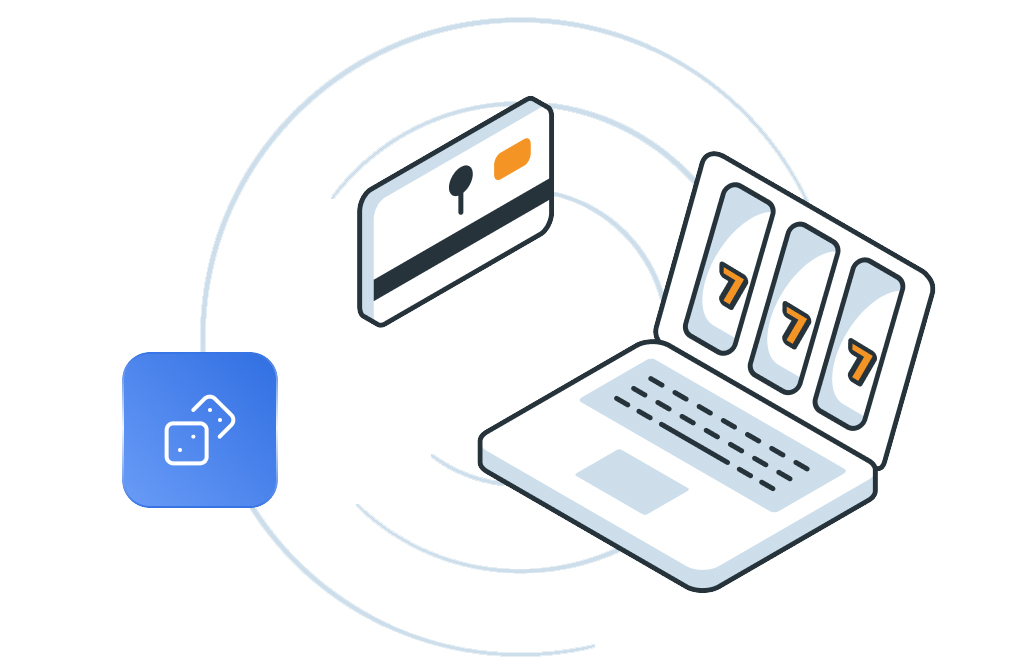Malta is a key player in the rapidly expanding online gambling industry, with around 10% of the world’s iGaming operators based in the country. As the global online gambling market is projected to reach a value of $94.4 billion by 2024, businesses in Malta must ensure their software complies with regulations set forth by the Malta Gaming Authority (MGA).
This article will provide valuable insights into MGA regulations and highlight compliance advantages for both businesses and consumers. Additionally, we’ll offer practical tips and relatively easy-to-follow steps to help ensure your software meets MGA compliance standards.
What is MGA regulation, and why is it important?
The Malta Gaming Authority (MGA) ensures that all online casinos and betting sites are secure and fair. In other words, the MGA regulation plays a vital role in the online gambling industry as it safeguards businesses and consumers. For businesses, complying with MGA regulations guarantees legal operation and helps avoid costly penalties and damage to their reputation. For consumers, in turn, it ensures fair play, protection of personal data, and responsible gambling practices. However, bear in mind that the MGA is not a lenient regulator. They have clear and strict regulations that all parties must follow. If they are violated, the MGA can impose severe sanctions such as fines, license revocation, or legal action.
For instance, between January and June 2020, the MGA imposed fines on nine companies totaling €2.43 million. Those included a fine issued to an unlicensed operator as part of the MGA’s first regulatory settlement, which involved the confiscation of illicit proceeds to combat illegal activities. Another company that the MGA fined is Blackrock Media Limited, which received a €2.4 million fine for operating gaming services through a Maltese legal entity without authorization. As such, businesses must ensure MGA regulatory compliance to act legally and responsibly within the online gambling industry.
Understanding MGA regulation for online gambling
You must meet the MGA’s criteria and requirements to operate an online gambling business. These cover different aspects of your software and services, such as technical, operational, financial, and ethical. The MGA checks these criteria to ensure that your online gambling business is of high quality and integrity. Some of the main requirements are:
- Obtain a valid MGA license for the type and scope of your online gambling activities.
- Submit your software and games for testing and certification by an approved testing laboratory.
- Use proper security tools and practices to ensure your system and data are safe from unauthorized access, manipulation, or loss.
- Ensure that your software and games are fair and random and that the outcomes are verifiable and auditable.
- Give your consumers clear and accurate information about the terms and conditions of your online gaming services.
- Respect the privacy and confidentiality of your customer’s personal and financial data and comply with the relevant data protection laws and regulations.
- Promote responsible gaming and prevent underage and problem gambling by offering tools and support to your customers, such as self-exclusion, deposit limits, reality checks, and helplines.
- Identify, monitor, and report suspicious transactions to prevent money laundering and terrorist financing.
- Pay the applicable fees to the MGA, such as the application fee, the license fee, and the compliance contribution. The amount of these fees depends on the type and level of license you are applying for.
- Complete the application form for a gaming license from the MGA and submit it along with the required documents, including a business plan, a risk assessment, a player protection and anti-money laundering policy, and other documents depending on the type of license you are applying for.
- Undergo the evaluation process by the MGA, which includes an assessment of your suitability to hold a license, a review of your financial and legal status, and an inspection of your premises and equipment. The evaluation process may take up to 16 weeks.
- Maintain a minimum share capital depending on the type of game you offer under a ‘B2C’ gaming service license. The minimum share capital ranges from €40,000 to €100,000 depending on whether you offer Type 1, Type 2, Type 3 or Type 4 games – we will explain them in the next paragraph.
MGA Regulatory Framework for Gaming
MGA regulation is based on a regulatory framework comprising several components such as the Gaming Act, Gaming Regulations, and Gaming Directives. These documents provide the legal basis and detailed guidance for online gambling activities in Malta and across the EU. The type of license or permit you need from the MGA depends on what kind of online gambling service you provide. Yet, bear in mind that getting a license from the MGA is a challenging task. You must complete a long and detailed application process, sometimes up to 18 weeks.
The MGA has two types of licenses — one for B2C (business-to-consumer) and the other for B2B (business-to-business).
The B2C license is for offering or carrying out a gaming service, such as online casino or lottery games. The B2B license is for providing or carrying out a critical gaming supply, such as gaming software or equipmenThe B2C license is for operators who offer games like casino games, lotteries, betting, or online games to players. The B2B license is for operators who make or sell gaming software or equipment to other operators.
Types of B2C licenses
There are also four types of B2C licenses, depending on what kind of games you offer:
- Type 1 is for games of chance, like roulette or slots.
- Type 2 is for betting on sports or events.
- Type 3 is for games where players compete against each other, like poker or bingo.
- Type 4 is for games that require skill, like fantasy sports or trivia.
After completing an application, you must pay some fees to get a license from the MGA. The costs vary depending on the type of license you need and how much revenue you generate from gaming. The B2C license fees are usually €25,000 per year, except for skill games which are €10,000 per year. A B2B license costs between €25,000 and €35,000 per year, depending on how much money you make. There is also a €5,000 fee when applying for and renewing a license. And don’t forget about taxes: you need to pay a 5% tax on your gaming revenue from Malta-based players every month and a 35% tax on your profits every year.
5 Tips to Ensure Your Software is MGA Compliant
Ensuring your software is MGA compliant can seem daunting, but it doesn’t have to be. Here are five simple steps you can take to help you achieve MGA regulatory compliance:
- Choose the right license type for your online gambling service. As mentioned above, the MGA has different online gambling games and operations licenses. You need to know the requirements and obligations for each license type and apply for the ones you need.
- Choose a trustworthy and reputable partner to deliver your software. The company should provide high-quality, secure software that complies with MGA standards. Look for a partner with experience in developing projects that comply with MGA regulations.
- Test and certify your software and games. Before launching your online gambling service, you must submit your software and games for testing and certification by an approved testing laboratory. The testing laboratory will verify that your software and games are fair, random, secure, and compliant with the MGA regulations. You will receive a certificate of compliance once your software and games pass the testing.
- Implement policies and procedures for data protection, responsible gaming, and anti-money laundering. As part of your MGA regulatory compliance, you must protect your customers’ personal and financial data, promote responsible gaming, prevent problem gambling, and combat money laundering and terrorist financing. You should document and follow clear policies and procedures for these areas. You should also train your staff and check your activities often.
- Keep up to date with the MGA regulatory framework. The MGA regulatory framework is constantly evolving to keep pace with the changes and challenges in the online gambling industry. You must stay informed of any updates or changes in the MGA regulations and adjust your software and practices accordingly.
If you want to learn more about software requirements, you can download the System Audit Checklist. It provides detailed information, such as the objectives, the scope, the criteria, and the evidence that you need to provide. Please read this document carefully and follow the instructions.
Key Takeaways
MGA regulation is a high-quality and trusted standard in the online gambling industry, making online gambling fair, safe, and transparent for businesses and consumers. It includes game design, software development, security, data protection, responsible gaming, anti-money laundering, and consumer protection.
Ensuring your software is MGA compliant can be challenging, but it doesn’t have to be overwhelming. By working with a trusted partner who can provide you with high-quality and secure software that meets the MGA standards, you can easily achieve MGA regulatory compliance.
If you’re facing challenges related to developing MGA-licensed software, we at Blurify have a team of experts who can help you out. Our experienced team is well-equipped to handle any questions. Contact us to take advantage of our expertise in the field.





